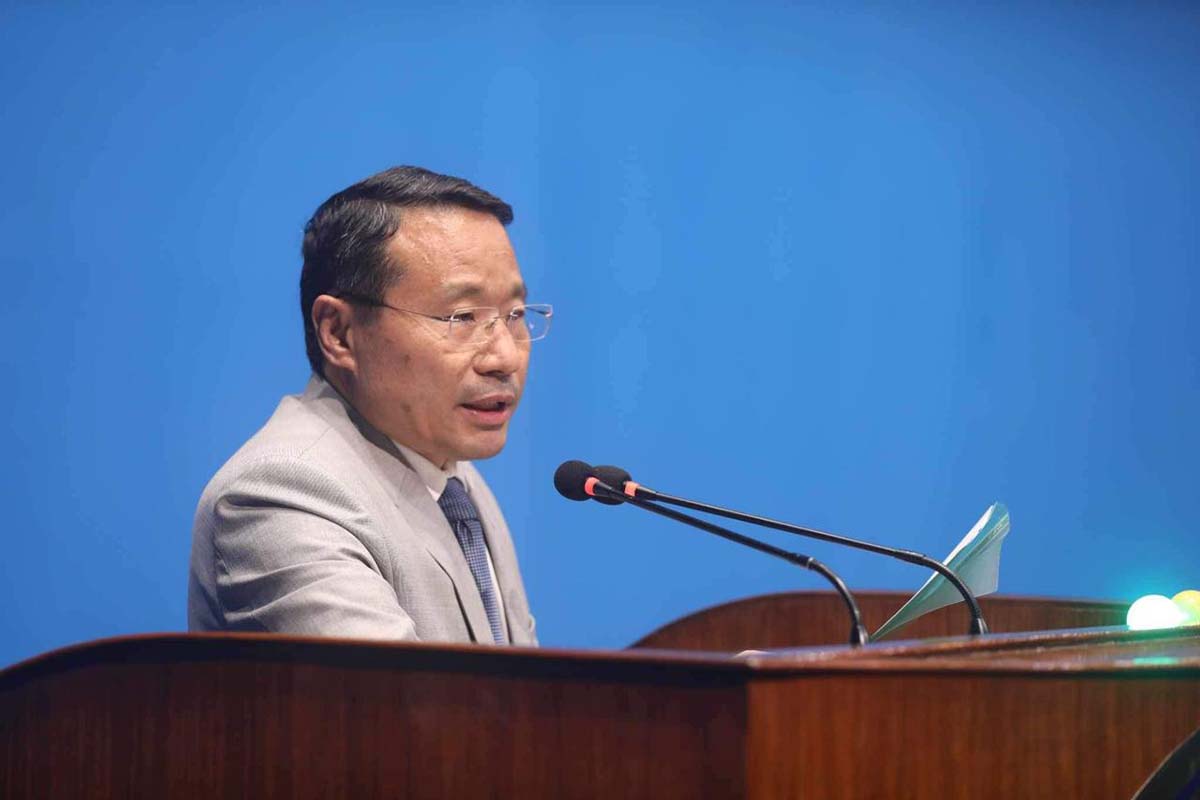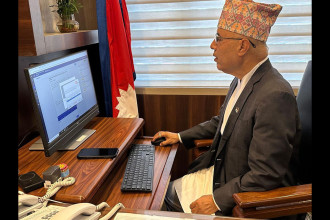
KATHMANDU: Finance Minister Barsha Man Pun has addressed the queries of House of Representatives (HoR) members regarding the government's annual programmes for the fiscal year 2024/25.
During Monday's HoR meeting, Minister Pun refuted lawmakers' allegations that the Ministry of Finance (MoF) had accumulated a substantial amount in arrears. He clarified that only Rs 48.61 billion has been allocated for the MoF in the upcoming fiscal year. Additionally, he informed the lawmakers that more than Rs 174 billion, including Rs 148 billion for fiscal equalisation grants, Rs 13.2 billion for complementary grants, and Rs 12.9 billion for special grants, will be disbursed through provincial and local levels.
In response to further discussion, lawmakers claimed that the MoF held Rs 200 billion in arrears. Minister Pun emphasised that the total amount allocated to the MoF is only Rs 48.61 billion. He reiterated that more than Rs 174 billion, comprising Rs 148 billion for fiscal equalisation grants, Rs 13.2 billion for complementary grants, and Rs 12.9 billion for special grants, will be utilised at the provincial and local levels.
Minister Pun also disclosed that the proposed budget for the upcoming fiscal year includes recurrent expenditure of 61.31%, capital expenditure of 18.94%, and fiscal management of 19.74%. Compared to the current fiscal year, recurrent expenditure has been reduced, while the budget allocation for capital expenditure has increased. To enhance budget implementation, Minister Pun emphasised several measures: avoiding the transfer of project chiefs during the project period, implementing two shifts in national pride projects, formulating laws related to development project implementation, preparing budget implementation procedures by mid-July, and establishing necessary procedural guidelines from mid-July to mid-August. He expressed confidence that these arrangements would improve capital expenditure and lead to achievement-oriented budget implementation.
Minister Pun clarified that all people's representatives play an equally important role in discussing and approving the budget, following existing laws, guidelines, and approved systems.
The government remains committed to balanced development across geographical areas and communities. However, Minister Pun acknowledged that budget allocation may not be equal in all constituencies due to project priorities. He dispelled the notion that the government favours specific electoral constituencies based on party affiliation or leadership positions, emphasising the commitment to overall development.
Regarding project implementation, Minister Pun highlighted the need to avoid duplication at federal, provincial and local levels. Large projects will be handled by the centre, medium-sized projects by the provinces, and small projects by local authorities. Some projects may receive less than 30 million in conditional grants under financial transfers. Minister Pun assured that climate funds and green financing will be utilised based on environmental justice principles, including the damage and loss fund. Despite concerns about public debt, the government aims to use debt productively, considering the total public debt-to-GDP ratio below 40% as a favourable condition for investment in the country's prosperity.
He clarified that the budget has prioritised the sports sector, with a 22% increase in funding for the Ministry of Sports in the upcoming fiscal year compared to the previous year. He also highlighted that the revenue collection target for the upcoming fiscal year is more balanced compared to the current fiscal year. He expressed his belief that achieving the revenue collection target is feasible through economic mobilisation, a clear action plan to boost revenue, and intensified market monitoring to control revenue leakage.
During budget discussions, lawmakers raised concerns about the substantial funds held by the Ministry of Finance (MoF) under various headings. They also pointed out low capital expenditure and weak spending capacity. Additionally, there were concerns about increasing expenses related to public debt, recurrent expenditure, and fiscal management. Despite these challenges, the government remains committed to balanced development. However, the concept of a project bank has not yet been fully implemented.
Leaders and ministers posed 12 questions, including inquiries about additional budget allocations for districts and constituencies.






-1770991037.jpeg)